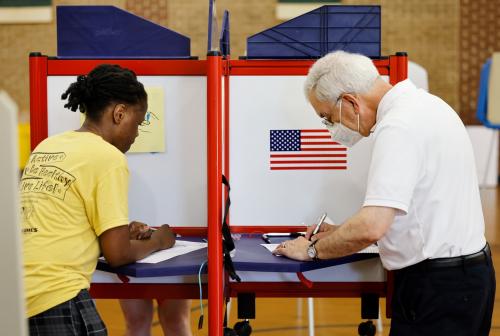You may have heard of judicial activism. Also originalism, minimalism and many another judicial “ism.” In its decision Tuesday striking down California’s ban on same-sex marriage, the 9th Circuit U.S. Court of Appeals introduces a doctrine of its own: judicial deactivism. This doctrine is calculating, compromising, crass — and on balance quite a good thing.
In 2003, California created civil unions that conveyed all the state trappings of marriage but withheld the formal term. Some gay couples sued, maintaining that denial of the prestigious M-word denied equal status (which, of course, it did). In 2008, the state Supreme Court agreed, and ordered gay marriage as a right under the state Constitution.
Six months later, anti-gay-marriage activists succeeded in passing Proposition 8, an initiative that revoked gay marriage by changing the state Constitution. That, of course, set off another court challenge, this time under the U.S. Constitution.
In 2010, Federal District Judge Vaughn Walker held Proposition 8 unconstitutional. This is the decision the appeals court upheld on Tuesday. The case may now be headed for the U.S. Supreme Court.
On its face, the 9th Circuit’s decision affirmed Walker’s ruling. But “deactivated” is the more apt term, when you peer beneath the surface.



Commentary
Op-edGay Marriage Ruling in California is Politically Shrewd
February 10, 2012